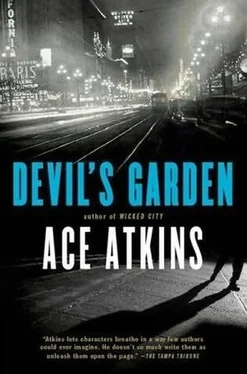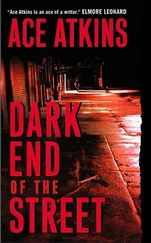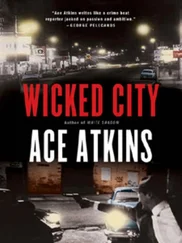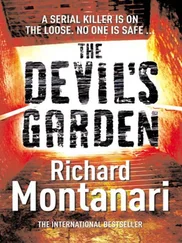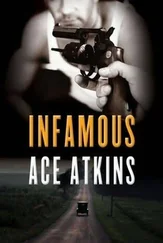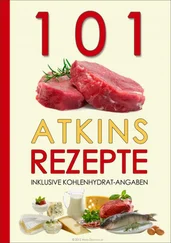I know them,” Roscoe said. It was late and he sat in his hotel room over a bottle of bourbon with Gavin McNab. “I don’t follow,” McNab said, rubbing his eyes, still buttoned tight in his boiled-and-pressed shirt and tie, black coat slung over the back of his chair.
“You know your audience.”
“They’re not an audience,” McNab said. “They’re a jury.”
“What do you think an audience is?”
“They watch you sing and dance and do a little comedy. We’ve spoken of this before.”
Roscoe shrugged and took a sip of the bourbon. Minta had packed along a few bottles for him in her suitcase, knowing they couldn’t be tipping a bellboy during the trial, risking some kind of side scandal.
“What about Mrs. Nelson?”
“What about her?” McNab asked.
“She called her occupation that of a housewife.”
“So?”
“She said it forcefully-like, take it or leave it. She’s no-nonsense. Doesn’t get wrapped up in emotion or bullshit.”
“Did you see her hat?” McNab said.
“Of course,” Roscoe said. “Enormous. Reminded me of something a pirate would wear. I like her. Rock-solid old broad.”
“Who else do you like?” McNab said, a smug grin creeping into one cheek, indulging the fat man.
“Mr. Sayre? C.C.?”
“Clarence,” McNab said. “Cement contractor.”
“He smiles. Big smiles, rosy cheeks. That’s a man who knows what it’s like to drink a few whiskeys, do a little dance. He knows there’s no harm in that. No Satan creeping in the bottle.”
McNab finished off his whiskey. He leaned back into his seat. “Roscoe?” “Hold on,” Roscoe said. “Hold on. Kitty McDonald.”
McNab’s face was fogged out by the smoke coming from his lips, squinting across the table, genuinely intrigued now. The whole indulgence thing passed. “Go on.”
“Rich woman,” Roscoe said. “A fine-looking woman. Did you see her furs?”
McNab nodded.
“She doesn’t want to be there. She wants this whole business to wrap up.
She’ll swing with the rest of ’em. Okay, who’s next? Miss Whosit? The old broad?”
“Mrs. Winterburn.”
“Fantastic name. Isn’t it? Winterburn. Don’t you love saying it? She’s the prim-faced schoolteacher, the woman who’d whack your knuckles with a ruler. Sour old kisser. Didn’t she say she was in one of those women’s clubs?”
“She’s not a Vigilant, if that’s what you’re asking. Do you think I’m an idiot, Roscoe? Her club is literary. She’s part of the Jack London Society.”
“Ha!” Roscoe said, pounding his fist on the table, the whiskey glass trembling. “A woman of the arts. And what am I?”
“You make movie pictures.”
“The arts.”
“If you say so.”
“Okay. Okay. I’m running them down in my mind. I watch them. Not directly but slyly out of the corner of my eye. I don’t want them to think I’m trying to make contact, as if I am a desperate man.”
“God forbid,” McNab said, waving the smoke away with his hand. His eyes squinting more at Roscoe, maybe a little less curious now. He checked his timepiece again.
“It’s two minutes past.”
“Past what?”
“Last time you checked,” Roscoe said.
“Christ Almighty.”
“August Fritze.”
“Solid fellow. Brokers cotton.”
“That’s not why I like him,” Roscoe said, pointing his index finger at McNab.
“Do tell.”
“He wears spats. Spats! What kind of man wears spats in San Francisco?”
“A man who likes spats.”
“A man who likes women, drinking, song,” Roscoe said. “Dierks is obvious. How on earth did you get a former liquor salesman on the jury?”
“Because I can outthink and outmaneuver Brady and U’Ren in my sleep.”
“What’s the explosives expert’s name?”
“Crane.”
“I don’t get a read on him. He’s kind of a mystery. Same with that Reef fellow. Both poker-faced bastards.”
“And we all know you like Mrs. O’Dea.”
“She smiled at me.”
“Stop the earth.”
“And who is the big man? The one with the hangdog face?”
“Mr. Torpey.”
“And Kilkenny,” Roscoe said. “Candy manufacturer. I know you found him kinda grim. But he can be won. I can make a case to him.”
“When is that?”
“When I testify.”
“And you’ve decided?”
“Yes.”
McNab stubbed out the cigarette. He stood and slipped into his big black coat and buttoned up the front. He checked the timepiece again before he got the final buttons, and Roscoe knew it was an effort to unnerve him.
It worked.
“Just what did Zukor say to you?”
McNab looked Roscoe in the eye. He bit a cheek and rocked back on his heels, hands in pockets. He kept the same dead-eyed stare and said, “He said you weren’t quick-witted enough to keep up with those jackals.”
“Brady and U’Ren.”
“Mmm-hmm.”
“Zukor is a fool.”
“I find him quite shrewd.”
“But you know me better.”
“Perhaps,” McNab said. “Good night, Roscoe.”
“That’s it?”
“We’ll speak on this tomorrow. It’s quite late. Thank you for the drink.”
“I’ll see you out.”
Roscoe walked down the long hall of the Palace to the elevator, where McNab pressed the button to ring the boy. He held his fattened leather satchel in his left hand and kept quiet as the elevator groaned into motion, the pulleys taking on the great weight of it all.
“You forgot one,” McNab said, the boy rolling back the cage.
“Who?”
“Mrs. Hubbard.”
Roscoe snapped his fingers.
“The woman in the feathered hat. Old and pinched face. Very sour.”
“She worries me, Roscoe,” McNab said. “Very much.”
“Give me five minutes.”
“U’Ren will ring you dry.”
“You ever performed before silver miners in Arizona while wearing a dress?”
“Can’t say I have.”
“Give me a shot.”
“If they make you bleed, it could ruin my career. Make me look foolish.”
“I’ve sat there and listened to lies about me for two weeks,” Roscoe said.
McNab looked at him, up and down, from slippers up to the top of his neatly oiled hair. He slipped into the cage, placing a hat on his head and tipping the brim at Roscoe just before the cage door rolled back and the elevator disappeared below.
THE FOG WAS WET As RAIN.
Sam moved out onto the ferry’s deck to have a smoke, most of the passengers inside, nothing visible beyond the running lights cutting through the night and the thick banks of clouds. Sam lit a cigarette and clung to the railing.
A wide swath of lights shot from the military base on Alcatraz and from the north tip of the city at the Ferry Building, crossing each other every minute or so. From the city, great horns blared across the darkness, helping the seamen find their balance, their place in the black. Sam finished his cigarette. Started a new one.
He would go to the Flood Building and file a report using his Pinkerton number and not his name. You never used your name. The system didn’t work that way.
He would skip coffee and some hash and go straight home. Jose would be waiting up, rocking the baby and looking down on Eddy Street, ready for him before he put the key in the door. She’d have something warm for him already, the Murphy bed laid out with clean linens, bleached white and fresh smelling.
Jose.
His face heated with shame.
Shoes clacked on the wooden deck through the fog.
Tacoma seemed years ago. She was the prettiest nurse by far, with those soft blue eyes and a hell of a body. She’d laugh at his jokes and let him follow her through her rounds at the sanitarium, helping her wheel out terminal patients onto that giant front porch on sunny days. And while the old soldiers would stare at the yellow-gray horizon with gaping mouths, they’d trade stories about Montana or about her time in London during the war. She convinced him he wasn’t terminal, that he’d be fixed up before he knew it, and it’d taken him a full two weeks before she met him in town for a plate of spaghetti and to catch a moving picture. They saw Pollyanna with Mary Pickford, and for weeks after that that had been his nickname for Jose every time she’d talk to him about his cure, sitting outside in that same spot watching those openmouthed, shell-shocked bedraggled men staring at the skyline. Pollyanna.
Читать дальше
